Magnificent Frigatebird, Fregata magnificent, Man O’ War bird, Rain-brother, Fragata Tijereta (Spanish), Chimay (Mayan)
Black, long-winged, fork-tailed birds sail effortlessly over my head during a walk along the Yucatecan coast. It’s as if they float on air without flapping those angular “M” shaped wings. While these Magnificent Frigates look beautiful in flight, these ‘sail-ers’ make their Man O War namesake real like pirates ready to sail to go to war to steal their food booty from other birds. Often seen flying above Progreso, Rio Lagartos, and Sisal, they may pillage village fishermen by grabbing fish or fish offal, an awful offense.
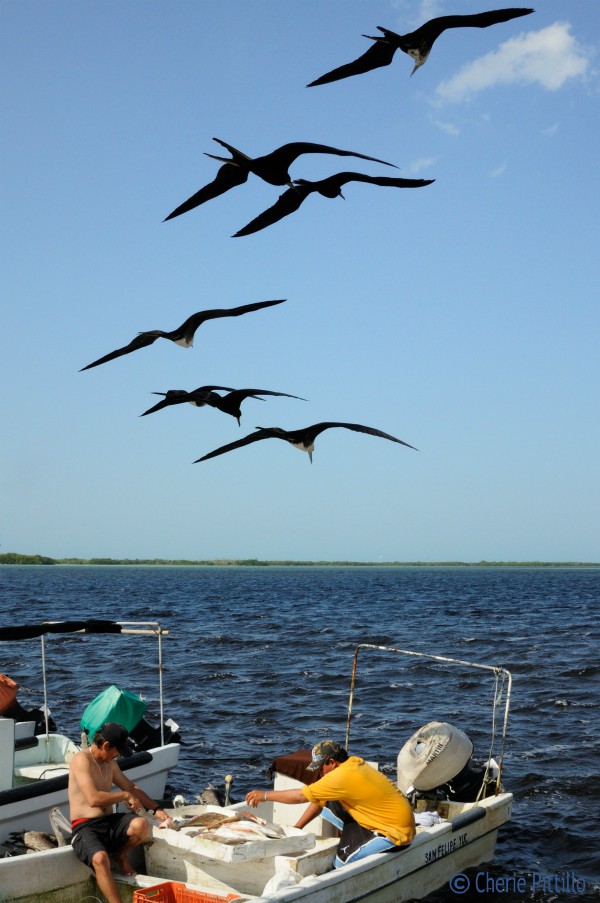
Magnificent Frigatebirds can eat fish and shrimp offal and also snatch fish from baskets carried by fishermen from a boat to cooler
These nimble, aerial pirates can harass gulls, terns, and other birds in flight to disgorge their food. These kleptoparasites then catch that food in the air. But the Magnificent Frigatebird and its four other cousins (one genus, five species) seem to act like pirates depending on where they live.
As coastal and open ocean seabirds of the tropics and subtropics, research indicates their favorite foods seems to be flying fish and squid snatched off the ocean’s surface. Also they rely on tuna and dolphin to chase schools of fish near the surface where the frigatebirds can then feed on the smaller fish. In addition, they may dine on jellyfish, baby turtles, crabs, large plankton, fish and shrimp scraps, and seabird eggs/chicks. Plus they even dined on dynamited, stunned fish during building of the Panama Canal. One stray bird fed on freshwater fish in Pennsylvania, USA.
Frigatebirds lack water-repellent feathers and cannot swim or dive. Although they can drink water by scooping it up in their bills during flight, they will drown if their feathers become soaked. Also, short legs and small, weak feet cannot propel them out of the water. Either wind or a raised perch is needed for a lift-off.
Larger, heavier females wear a white chef’s apron on their black bodies and black head while males wear basic black with a scarlet throat sac which can be inflated during breeding season or a dull color when not. All five species of adult male and female frigatebirds have different sexual plumage (sexual dimorphism), the only seabird family to do so. Juveniles sport a white bib with a white head and go through many different molts until their 5-7th year to achieve sexual maturity.

Female Magnificent Frigatebird with black head perches in lower right corner with white-headed juvenile males
Both parents sit on the nest and care for the solo chick for a few weeks after hatching. Then the male departs anywhere from 20 -100 days later. Therefore the female feeds and cares for the chick for the next 9-12 months or so. Therefore, she breeds every two years while that male can breed every year. This is the longest parental care for any seabird and it’s the only known seabird family where the sexes have different breeding cycles.
Frigatebirds hold another record due to their lightest body weight (2-3 pounds) in contrast with the seven-eight foot long wingspan. As another record holder, frigatebirds have a fused pectoral girdle where the flight muscles attach and anchor the wings to their body. That fusion adds strength and helps in their air maneuvers. Charles Darwin nicknamed them, “the condors of the ocean”.
With incredible top-gun movements they can cruise at 30+ mph (50 K) and can soar for hours riding thermals up to just under a mile above the ocean. When they ride in front of a storm, Australian aborigines believe they bring the rain and are called “rain-brothers”.
In addition to many one-of-a-kind records, both the Magnificent and Great Frigatebird studies of only three-to-ten day non-stop flights over the ocean indicated they can sleep in flight using half their brain. When roosting on land, they may sleep 13 hours a day, but during a night flight, they garner just under 45 minutes in ten second bursts. By the way, frigatebirds can fly for two months without touching land or water.
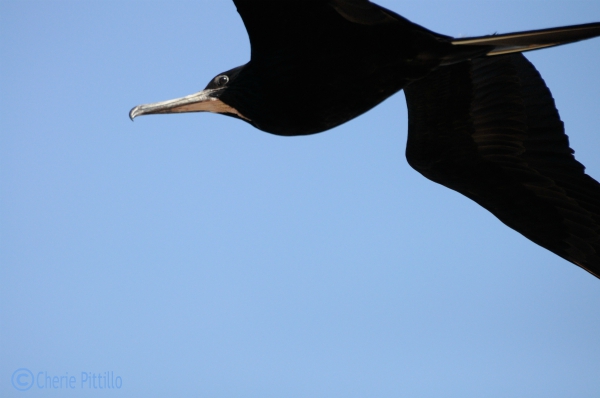
At night, the Magnificent Frigatebird rides thermal updrafts and can sleep in flight with only half its brain awake
Scientists think the small amount of sleep may relate to their feeding behavior since they follow ocean eddies day and night. This action enables them to be in position to feed at an eddy at daybreak.Typically they ride thermal updrafts at night and keep only one eye open of that half-brain towards the inside of the thermal, but sometimes they can sleep using the whole brain.

Since Magnificent Frigatebirds soar almost a mile high in the open ocean, they may not be easily spotted in their search for food there.
But wait, there’s more to these fascinating birds such as doubling as a carrier pigeon. Often used as pets in Polynesia, a fisherman would take his pet bird on board for a long fishing trip. After reaching his destination, he would release the bird with a message tied to its leg to return to its home with the news of a successful trip.
Plus the Magnificent Frigatebirds, their chicks, and eggs have provided food, medicine, and use in voodoo for locals in Caribbean. When it’s used in voodoo, maybe that would be a freaky frigatebird.
GET YOUR FREAK ON, GO OUTDOORS, AND DISCOVER NATURE’S MAGNIFICENCE!
DISCLAIMER: References do not agree on details about this species. Sal a Pajarear Yucatan (Guia de Aves), A Guide to the Birds of Mexico and Northern Central America, Birds & Reserves of the Yucatan Peninsula, Birds of North America, https://phys.org/news/2016-08-birds-engage-flight-remarkably-small.html, http://www.naturalhistorymag.com/htmlsite/1004/1004_feature.html
http://www.naturalhistorymag.com/htmlsite/1004/1004_feature.html http://www.bbc.co.uk/nature/life/Magnificent_Frigatebird
http://www.hbw.com/species/magnificent-frigatebird-fregata-magnificens
http://www.arkive.org/magnificent-frigatebird/fregata-magnificens/
Cherie Pittillo, “nature inspired,” photographer and author, explores nature everywhere she goes. She’s identified 56 bird species in her Merida, Yucatan backyard view. Her monthly column features anecdotes about birding in Merida, Yucatan and beyond. Contact: [email protected] All rights reserved, ©Cherie Pittillo


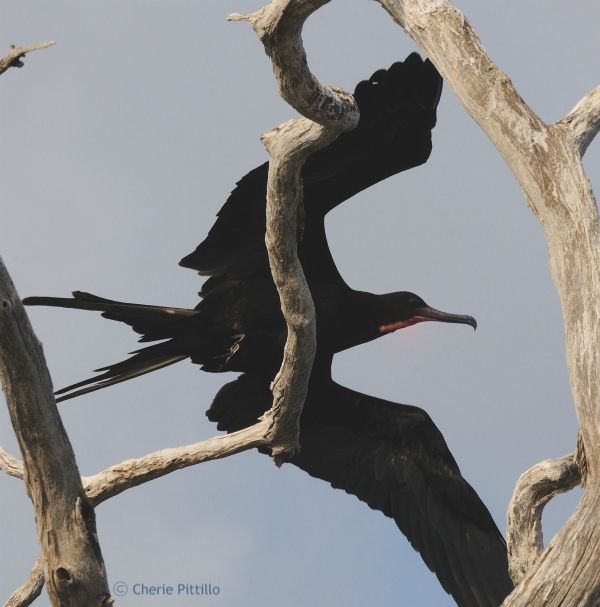
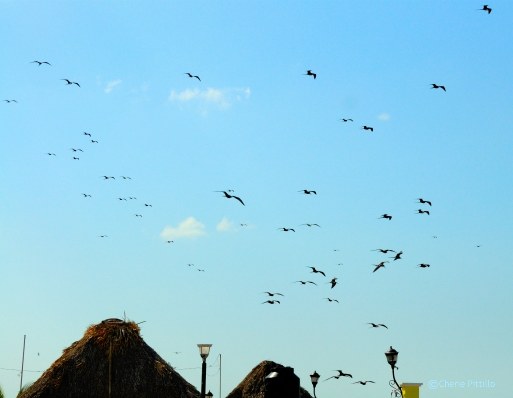
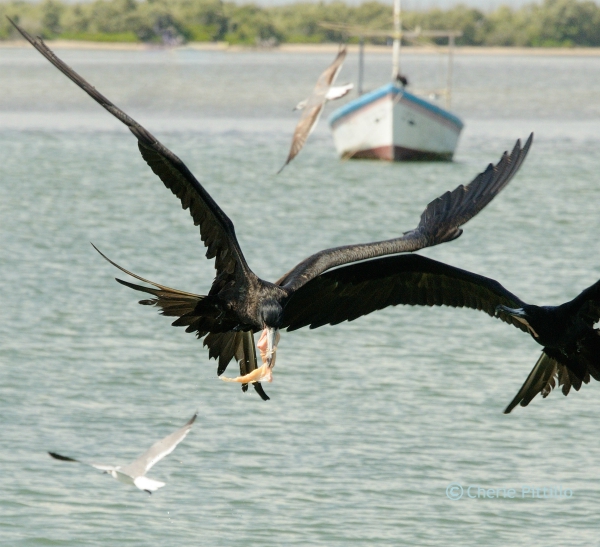
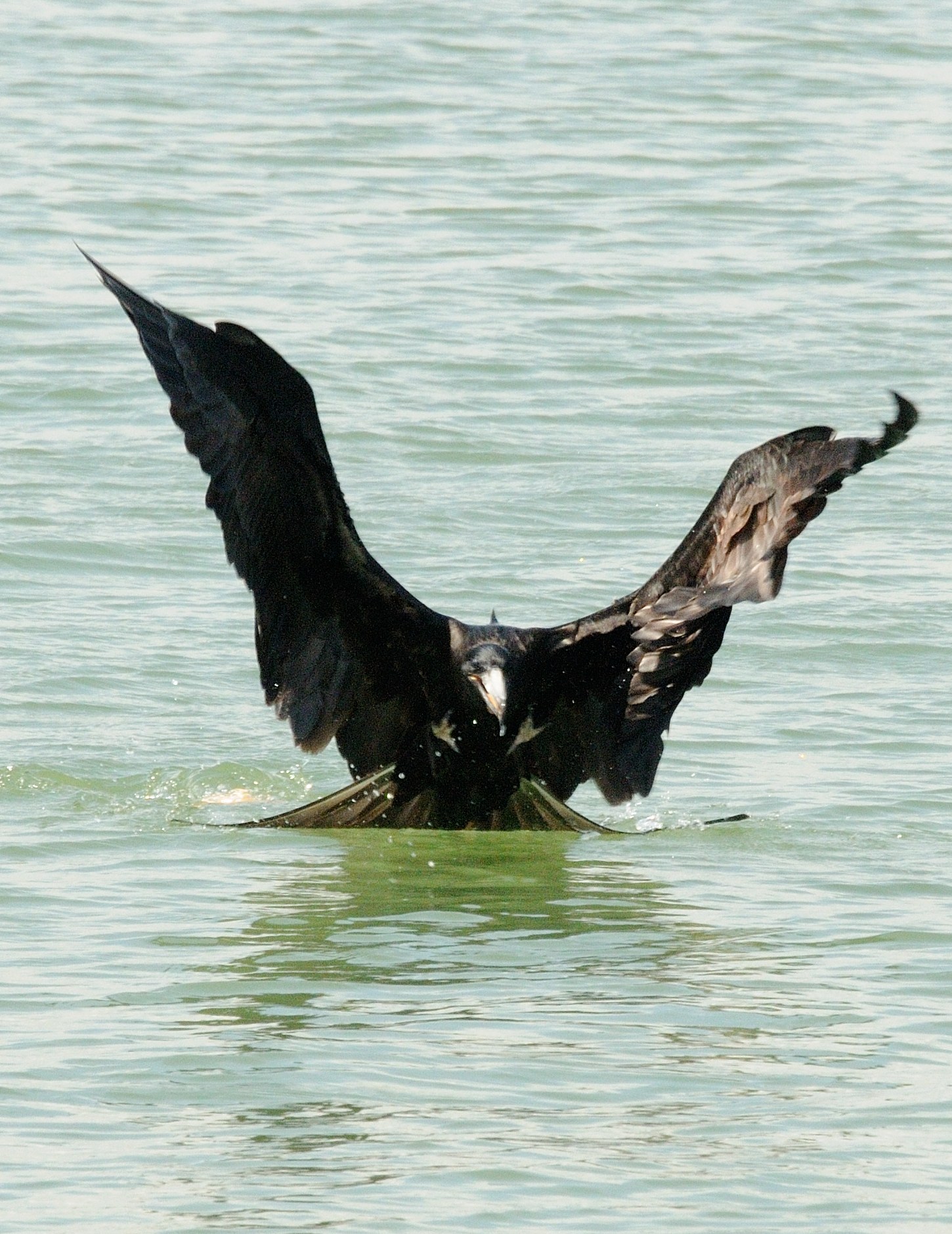
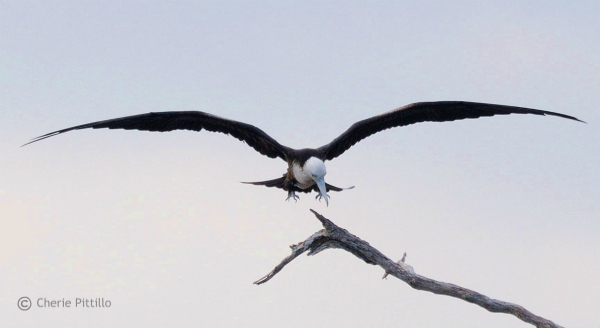


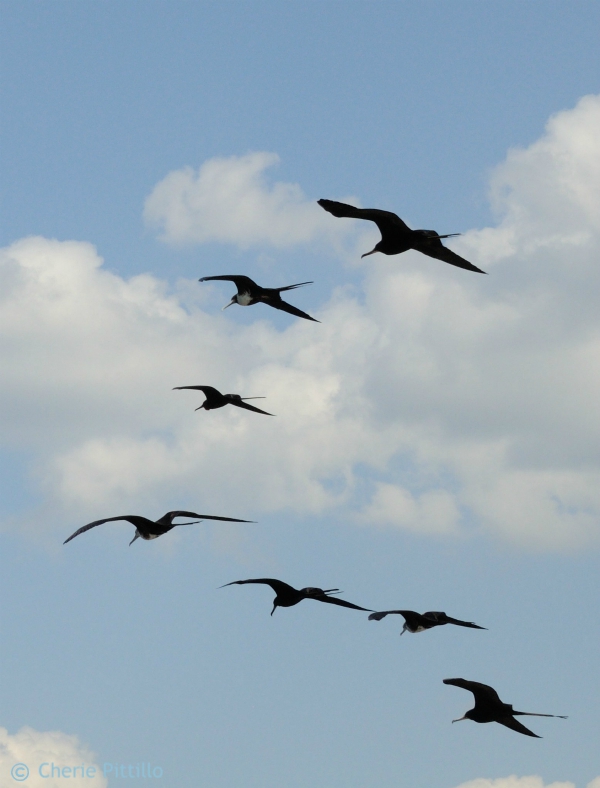

3 comments
Greetings Cherie, and congratulations on another great bird article. Thank you for sharing your story and photographs of this MAGNIFICENT creature!
Great to hear from you, Bev. Hope y’all are enjoying a MAGNIFICENT summer.
Thanks so much!
Great to hear from you, Bev. Thank you. Hope y’all are enjoying a great summer!